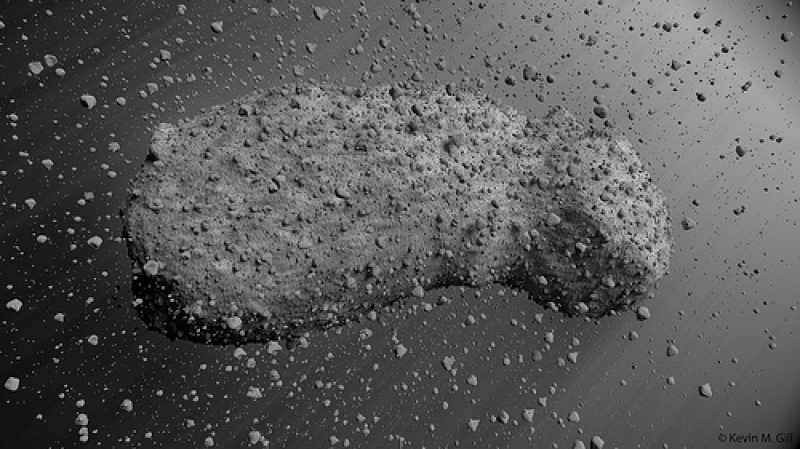
Vladimir Lipunov, an astrophysicist and professor at the Moscow State University, said that he is currently tracking a huge asteroid that's about to enter Earth's orbit, CS Monitor reported.
The asteroid, which has a diameter of 360 meters, is as big as a mountain and has been named 2014 UR116.
Lipunov detailed his study through a short documentary posted on YouTube titled "Asteroid Attack." According to the astrophysicist, 2014 UR116 crosses Earth's orbit every three years.
Although he said our planet is not in danger of colliding with the asteroid, he warned that the sudden discovery about the nature of 2014 UR116 indicates that there are still more to know about the behavior of the space rocks.
Also, Lipunov implied in the video that even though scientists can predict the path of asteroids, it is hard to accurately calculate their exact orbit. He noted that asteroids the size of 2014 UR116 are more prone to being led away from their orbital path due to the gravitational pull of other planets.
This is the primary reason why Lipunov believes the 2014 UR116 must be constantly monitored.
"We need to permanently track this asteroid, because even a small mistake in calculations could have serious consequences," he explained in the documentary.
Lipunov warned that if 2014 UR116 hits Earth, the explosion would be 1,000 times greater than the one produced by the bus-sized meteor that suddenly appeared over Russia's Ural mountains in February of last year.
Although the meteor exploded in the atmosphere, the shock wave from the blast shattered windows and caused structural damage to buildings, according to Inquisitir.
For Natan Esmant, an expert from Moscow's Space Research Institute, the discovery of the 2014 UR116 and sudden appearance of the 2013 meteor indicates that Earth is vulnerable to the over 100,000 objects in space that can unknowingly enter the planet's orbit.
"Every couple of days new ones are being discovered," he said according to CS Monitor. "Scientists have increasingly powerful tools to do this work, but there's a lot still to be done. Every object that crosses the Earth's path can be a potential threat."


















